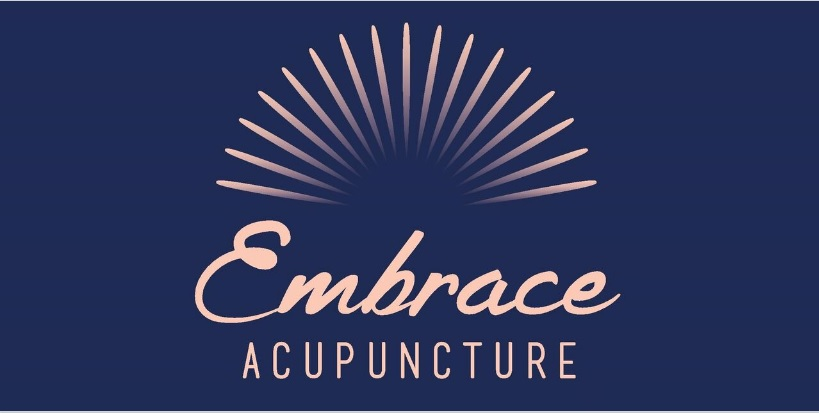Can Acupuncture help Anxiety?
*Updated March 2025
Just Checking In – How Are You Feeling?
(Busy is not an emotion 😉)
If your emotions and energy levels feel out of balance, you’re not alone. Anxiety is incredibly common and can show up in many different ways.
If your adrenals are feeling fatigued & your emotions are feeling less than smooth - you're so not alone!
We’re talking all things anxiety—what causes it, how it manifests, and how Acupuncture can help restore calm and balance.
See more on how we work with Acupuncture for anxiety.
Like some help?
What causes Anxiety?
So many things!
Anxiety has many different causes and can appear in various ways. At its core, anxiety is the activation of your fight-or-flight response—even when there is no immediate or active threat.
Anxiety can be triggered by:
Past trauma – Your brain and body remember past experiences, even if they seem small.
Suppressed emotions – Continually pushing down emotions, like anger, can cause inner tension.
Burnout and exhaustion – When the body is running on empty, it can become hyper-reactive, perceiving minor stressors as major threats when you don’t have the resources or bandwidth to deal with even the most basic of things.
Diet and Nutritional Deficiencies – Inadequate intake of essential nutrients like magnesium, B vitamins, and omega-3 fatty acids can contribute to heightened anxiety.
Chronic Stress and Lifestyle Factors – Poor sleep, excessive caffeine intake, and a lack of movement can increase stress levels and worsen anxiety symptoms.
Can Acupuncture help Anxiety?
For many, therapy and psychological support are essential. We want to be clear - we are not counsellors or psychologists. However, Acupuncture can support your body physically and emotionally, complementing your mental health care plan.
From a Traditional Chinese Medicine (TCM) perspective, Acupuncture helps by regulating Qi (energy) flow in the body, preventing stagnation and disharmony. Anxiety in TCM is often linked to imbalances in the Heart, Liver, Spleen, and Kidney systems:
Heart Qi Deficiency – Manifests as palpitations, insomnia, and excessive worry.
Liver Qi Stagnation – Causes irritability, frustration, and emotional tension.
Spleen Qi Deficiency – Results in overthinking, digestive issues, and fatigue.
Kidney Yin Deficiency – Leads to chronic fear, insecurity, and restlessness.
From a scientific perspective, Acupuncture influences the nervous system, promoting relaxation and switching the body out of ‘fight-or-flight’ mode and into 'rest-and-digest' mode (also known as your sympathetic and parasympathetic nervous systems for the science nerds out there). This is the same mechanism by which Acupuncture has been shown to regulate stress hormones like cortisol and increase endorphin production, fostering a sense of calm.
What the Acupuncture for Anxiety Research Says
A 2018 review in the Journal of Acupuncture and Meridian Studies found that Acupuncture significantly reduced anxiety symptoms and improved heart rate variability, demonstrating a calming effect on the nervous system.
A 2020 meta-analysis in Evidence-Based Complementary and Alternative Medicine confirmed Acupuncture’s effectiveness in treating anxiety disorders, especially for those resistant to conventional treatments.
A 2022 study in Frontiers in Psychology showed that Acupuncture influences brain activity in areas associated with emotional regulation.
A 2023 randomised controlled trial published in BMC Complementary Medicine and Therapies found that Acupuncture significantly reduced anxiety symptoms in individuals with generalised anxiety disorder, with long-lasting benefits.
A 2024 systematic review in Integrative Medicine Reports highlighted Acupuncture’s role in reducing physiological markers of stress, including heart rate and blood pressure.
Blood Tests & Nutritional Factors in Anxiety
Sometimes, underlying physiological factors contribute to anxiety. Checking your blood work can provide helpful insights.
Iron: Low iron levels mean less oxygen delivery, causing fatigue and stress hormone overproduction. This can leave you feeling anxious before your day even starts! Functional medicine's ideal ferritin (iron storage) levels are 75-150 ng/L, and serum iron should be 14-22 umol/L.
Sodium & Potassium: When adrenal function is under stress, it depletes key minerals. The optimal range for sodium is 140-144 mmol/L, and for potassium, it’s 4.3-4.7 mmol/L. These are included in a General Biochemistry test. You may need to add more salt or potassium-rich foods to your diet (eg bananas, avocados, and potatoes) to help your adrenals cope.
Magnesium: Low magnesium levels are linked to increased anxiety and muscle tension. Foods rich in magnesium include leafy greens, nuts, and dark chocolate.
B Vitamins & Omega-3s: Deficiencies in B vitamins (especially B6 and B12) and omega-3 fatty acids are associated with mood imbalances and heightened stress responses.
Mental Health Phone Support
There are many free services with highly trained professionals you can access. Here are some good ones, in case you need them beautiful folk...
PANDA (Perinatal Anxiety & Depression Australia) on 1300 726 306
Pink Elephants (Miscarriage Support, website only)
Lifeline on 13 11 14
Kids Helpline on 1800 551 800
MensLine Australia on 1300 789 978
Suicide Call Back Service on 1300 659 467
Beyond Blue on 1300 22 46 36
Headspace on 1800 650 890
QLife on 1800 184 527
Maintain Calm and Reduce Anxiety with Acupuncture
Have your mind & body brimming with health this year!
See more on calming anxiety how we work with Acupuncture for Anxiety and emotional wellbeing.
Rather than waiting until anxiety feels overwhelming, consider Acupuncture as a regular tune-up—just like servicing your car regularly before it breaks down. By addressing imbalances early, you support your nervous system and overall well-being. Many people find that consistent Acupuncture sessions help them maintain emotional balance, reduce stress, and improve sleep quality.
Acupuncture is a gentle, natural way to restore your body’s ability to handle stress and cultivate resilience. Alongside lifestyle and dietary changes, it can be a powerful tool for long-term mental and emotional well-being.
Have your mind and body brimming with health this year!
Book an appointment today to feel more grounded, resilient, and in control of your health.
This blog written by Dr Danielle Maguire (TCM).
Danielle graduated from RMIT University with honours in Bachelor Degrees in Human Biology and Traditional Chinese Medicine.
She has been passionately working with hormonal health, fertility and pregnancy for over a decade.
See more about how Danielle works here.






